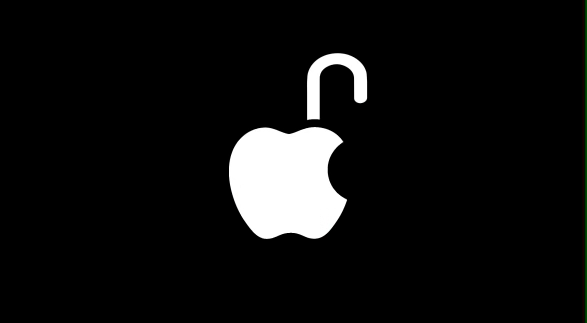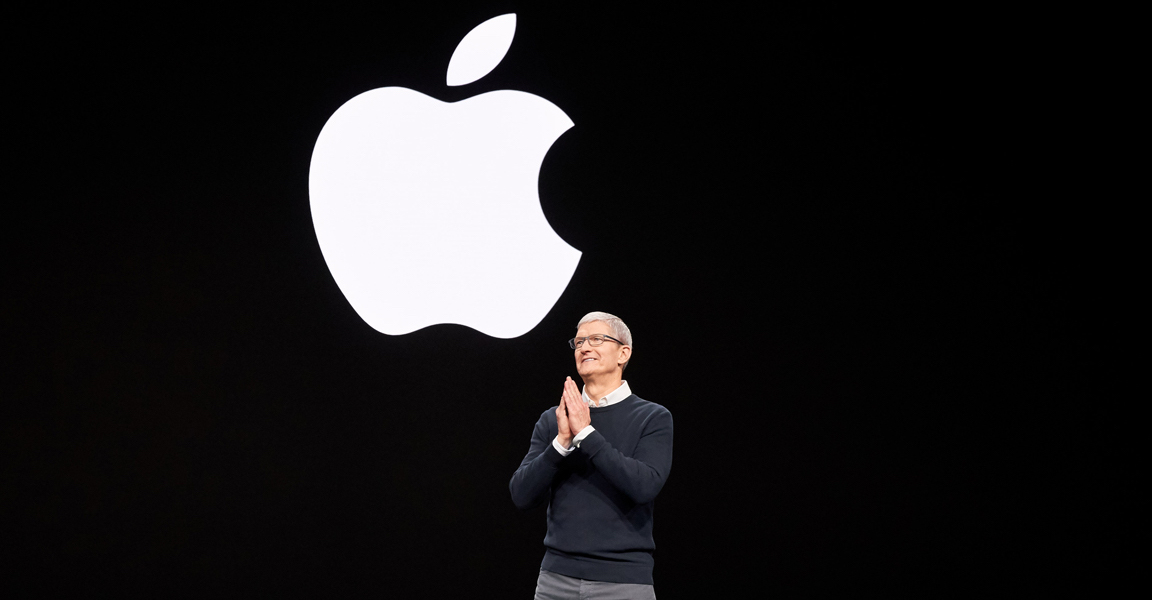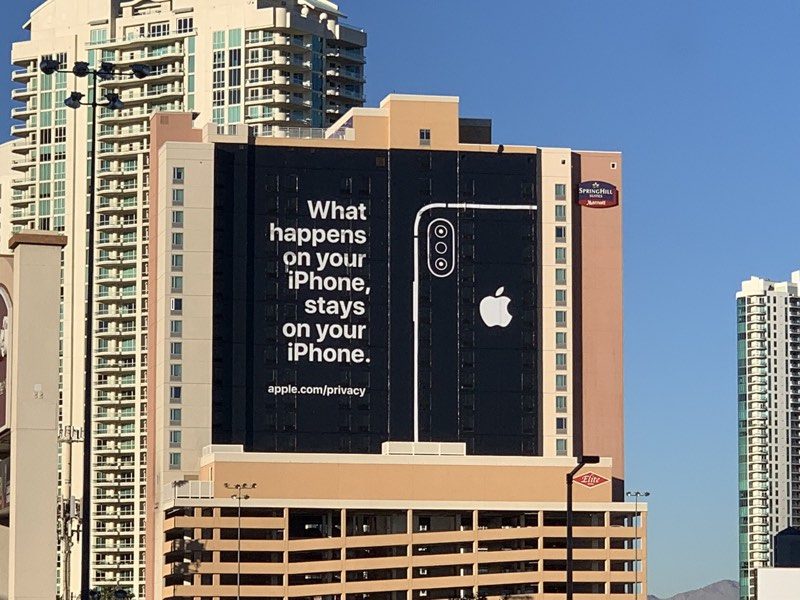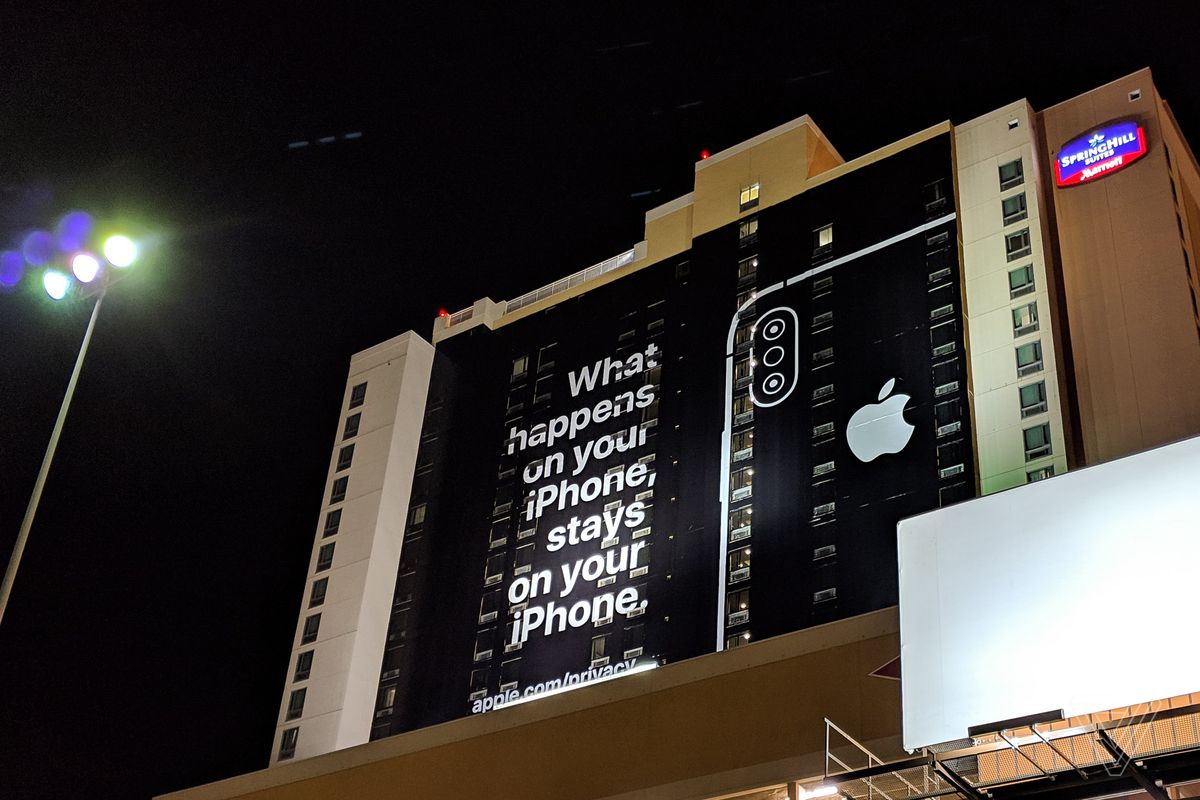Recently, the so-called sideloading on iOS, or the installation of applications and games from an unofficial source, has become a relatively common solution. Apple users currently have only one option to get a new app on their device, and that is, of course, the official App Store. That's why Apple published an interesting one on its privacy page today dokument, which discusses how important a role the mentioned App Store has and how sideloading would threaten the privacy and security of users.
This is how Apple promoted privacy at CES 2019 in Las Vegas:
The document even cites last year's Threat Intelligence Report from Nokia, which claims that there is 15x more malware on Android than on the iPhone. At the same time, the stumbling block is obvious to everyone. On Android, you can download the application from anywhere, and if you don't want it from the official Play Store, you just have to look for it somewhere on the Internet, or on a warez forum. But in this case comes a huge security risk. If sideloading were to arrive in iOS as well, it would mean an influx of various threats and a significant threat not only to security, but also to privacy. Apple phones are full of photos, user location data, financial information and more. This would allow attackers to gain access to the data.

Apple also added that allowing the installation of applications and games from unofficial sources would force users to accept some kind of security risks, which they would simply have to agree to - there would simply be no other option. Some applications needed for work or school, for example, could even disappear from the App Store completely, which could theoretically be used by scammers to get you to a very similar but unofficial site, thanks to which they would gain access to your device. In general, the confidence of apple growers in the system as such would decrease considerably.
It could be interest you

It is also interesting that this document comes just a few weeks after the court hearings between Apple and Epic Games. On those, among other things, they dealt with the fact that applications from other than official sources will not get on iOS. It also touched on why sideloading is enabled on the Mac but presents a problem on the iPhone. This question was answered by probably the most popular face of Apple, Vice President of Software Engineering Craig Federighi, who acknowledged that the security of Apple computers is not perfect. But the difference is that iOS has a significantly larger user base, so this move would be disastrous. How do you perceive it all? Do you think Apple's current approach is correct, or should sideloading be allowed?




 Adam Kos
Adam Kos
It's hard to say how it should be. Of course, I understand Apple and it is clear to me that they do this in principle also to make more money. But if the result is that it is safer, then I just don't care. Perhaps it could also be solved by having the user choose whether or not to enable sideloading when the iPhone is first started, and then not be able to change it until it is deleted and the iPhone is restarted and set up. I don't know if I would do it myself, because even if I think I really understand it, I still can't rule out that I won't get caught by something like the well-known Mackeeper, which is simply created so skillfully and their marketing is so great that an ordinary person really has no chance to know that he is a scumbag who does nothing and then it is very difficult to get rid of him.
hey, everyone had fun with mackeeper...
As for me, nothing bothers me, I basically don't install new apps anymore, in total I actively use about 20 of them
But if a person is 20 years old, has his first iPhone, is addicted to social networks and games, he is at risk from the digital mess around